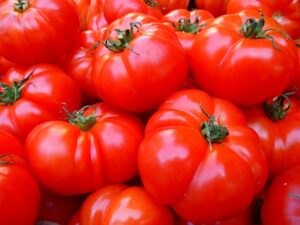Introduction
When it comes to the nutritional content of cheese, protein is one of the key components that many people are interested in. Protein is an essential macronutrient that plays a crucial role in various bodily functions, including muscle growth and repair. In this article, we will explore the amount of protein you can expect to find in a slice of cheese.
The Protein Content of Cheese
Cheese is generally known for its high protein content, making it a popular choice for individuals looking to increase their protein intake. However, the exact amount of protein in a slice of cheese can vary depending on the type of cheese and its serving size.
Types of Cheese: Different types of cheese have varying protein contents. For example, cheddar cheese typically contains around 6-7 grams of protein per ounce, while mozzarella cheese contains approximately 6 grams of protein per ounce. Parmesan cheese, on the other hand, is even higher in protein, with about 10 grams per ounce.
Serving Size: The protein content of cheese can also depend on the serving size. A standard slice of cheese is typically around 1 ounce or 28 grams. Therefore, if you consume a slice of cheddar cheese, you can expect to get about 6-7 grams of protein. However, it’s important to note that the size and thickness of the slice can vary, so the protein content may slightly differ.
Health Benefits of Cheese Protein
Cheese is not only a delicious and versatile food but also offers several health benefits due to its protein content. Here are some of the benefits associated with consuming protein-rich cheese:
Muscle Building: Protein is essential for muscle growth and repair. The protein in cheese can provide the necessary amino acids needed for muscle protein synthesis, making it a valuable food for individuals looking to build or maintain muscle mass.
Satiety: Protein is known to promote feelings of fullness and reduce appetite. Including cheese in your meals or snacks can help you feel satisfied for longer periods, potentially aiding in weight management and preventing overeating.
Nutrient Density: Cheese is not only a good source of protein but also provides various other essential nutrients such as calcium, vitamin B12, and phosphorus. These nutrients are vital for bone health, energy production, and cell function.
Conclusion
In conclusion, the amount of protein in a slice of cheese can vary depending on the type of cheese and its serving size. Generally, cheese is a good source of protein, with cheddar, mozzarella, and parmesan being popular choices. Including cheese in your diet can provide several health benefits, including muscle building, satiety, and nutrient density. However, it’s important to consume cheese in moderation as it is also high in saturated fat and calories.
References
– www.healthline.com/nutrition/9-health-benefits-of-cheese
– www.fatsecret.com/calories-nutrition/generic/cheese
– www.nutritionvalue.org/Cheese%2C_cheddar_nutritional_value.html













